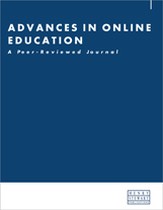Importance of measuring student experience in a short online course for educators
Abstract
This case study discusses the importance of measuring student satisfaction in online teaching. Student satisfaction is a crucial metric for any educational institution, regardless of whether it offers face-to-face, conventional education or open, distance and e-learning (ODeL). It is essential that students feel engaged and supported in their learning journey to ensure the best possible outcomes, especially in low-resourced countries such as Eswatini. ODeL have each been shown to provide unique advantages when it comes to student satisfaction due to their flexibility and convenience. However, it is important to note that wanting to recommend a course to someone does not necessarily mean that they were completely satisfied with all aspects of the course. For example, a student may have found a course to be very challenging but still found it valuable and would recommend it to others who are interested in the subject matter. Early on in research on blended and e-learning, it was highlighted that the quality of the instructors and the appropriate design and good facilitation of online learning activities are important determinants that influence student learning and satisfaction. Satisfaction is possibly the most accepted measure of teaching/learning quality and effectiveness. In addition, relevant and appropriate support services (quality) are seen by a substantial body of literature on education as a key factor and great predictor of student satisfaction in a blended/online learning environment. Therefore, measuring student satisfaction can help maintain quality teaching and learning by identifying areas for improvement. The case study also provides best practices for measuring student satisfaction in online teaching. These include using surveys or questionnaires that cover various aspects such as course content, instructor support, technical support, communication channels, assessment methods, among others. It is important to use validated instruments or develop customised ones based on specific needs. Furthermore, it is recommended to collect data at different points during the course delivery to capture changes in student satisfaction over time. The data collected should be analysed and used to inform decision making and improve the quality of teaching and learning. In conclusion, measuring student satisfaction in online teaching is crucial for maintaining quality teaching and learning. OSeL have unique advantages when it comes to student satisfaction, but it is important to ensure that students feel engaged and supported throughout their learning journey. Best practices for measuring student satisfaction include using validated instruments, collecting data at different points during course delivery, analysing data and using it to inform decision making.
The full article is available to subscribers to this journal (subscription is free).
Author's Biography
Karen Ferreira-Meyers is an Associate Professor at the Institute of Distance Education, University of Eswatini, Eswatini and Research Fellow at the University of the Free State, South Africa. Karen has a strong track record in teacher development in Southern African contexts and has expertise in the area of blended, distance and e-learning and teaching. Her research interests are varied: from teacher training, ODeL, open education, open schooling, teacher professional development, online facilitation, digital transformation, artificial intelligence (AI), self-directed learning, quality assurance in education to autofiction and autobiography, crime and detective fiction, African literatures. She has published over 100 papers, various book chapters, a monograph and more than 100 book reviews. She enjoys working collaboratively and has been tasked with the leading of project teams. Her recent publications include First language instruction? Eswatini teachers’ insight of the Eswatini language-in-education policy, Southern African Linguistics and Applied Language Studies (2023), ‘Intégration du téléchargement des chansons populaires à partir des réseaux sociaux dans le cours de poésie: vers une modélisation des pratiques’, Multilingual Digital Tools for Environmental Protection and Eco-Citizenship: What Type of Integration for Empowerment of Adult Learning?, ‘Rethinking Formative Assessment in Times of COVID-19: A Critical Analysis of University Assessment in Eswatini’ (2022), ‘The need for revision of selected aspects of online master’s and doctoral student supervision’ and ‘Doctoral supervision: Let us dream about thesis defence!’.
Citation
Ferreira-Meyers, Karen (2023, September 1). Importance of measuring student experience in a short online course for educators. In the Advances in Online Education: A Peer-Reviewed Journal, Volume 2, Issue 1. https://doi.org/10.69554/JNAP4551.Publications LLP
